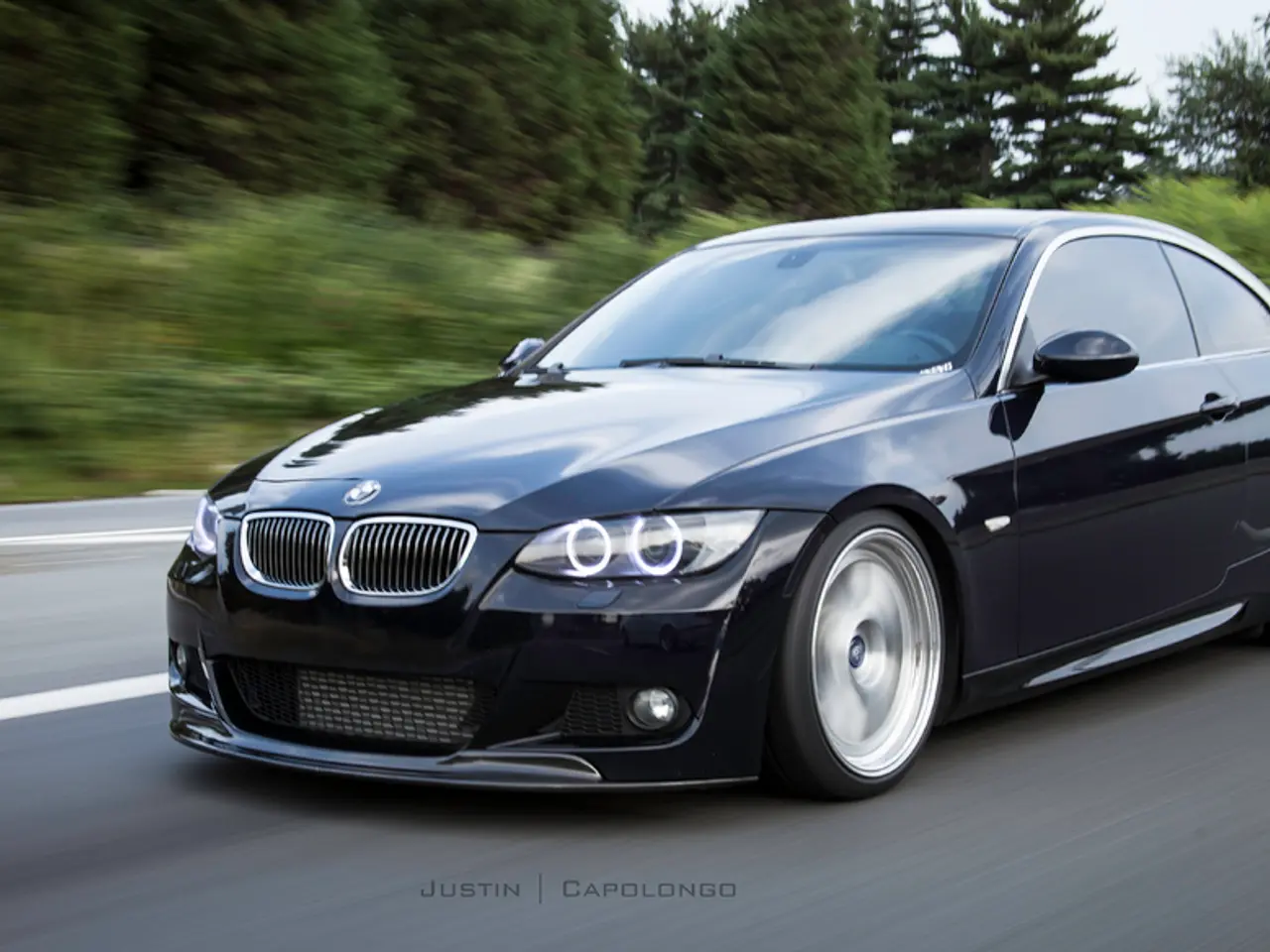Audi's e-tron family receives an update with the introduction of the Q6 Sportback model.
The automotive industry is abuzz with Audi's latest offering, the Q6 Sportback e-tron, a sleek and stylish addition to their battery-electric vehicle (BEV) lineup. However, the German automaker faces significant hurdles in the competitive and evolving U.S. market.
The Q6 Sportback e-tron boasts a sweeping digital cockpit, featuring an 11-inch instrument display and a 14.5-inch central OLED touchscreen, powered by Android Automotive. It comes equipped with a 100-kWh gross (94.4-kWh usable) battery and offers only dual-motor all-wheel drive, with a lower profile compared to the standard Q6 e-tron, sitting 1.4 inches lower.
The Q6 Sportback e-tron delivers impressive performance, producing 456 hp, accelerating from 0-60 mph in 4.9 seconds, and reaching a top speed of 130 mph. Its eco-friendly credentials are equally impressive, with an EPA-estimated range of 319 miles on 19-inch wheels, dropping to 295 miles on 20-inch wheels. The swooping roofline of the Q6 Sportback e-tron enhances aerodynamics, boosting EPA range by approximately 12 miles over the boxier version.
However, Audi's BEV market in the U.S. faces notable challenges. The company's e-tron lineup, including earlier models like the original e-tron SUV, has struggled to gain significant consumer interest and sales momentum compared to rivals like Tesla, BMW, Hyundai, and Ford. The original e-tron was criticized for its modest electric range, high price, and uninspiring design, leading to lukewarm reception in the U.S. market.
The new 2025 Q6 Sportback e-tron aims to enhance Audi’s BEV appeal with a sleek design, competitive range, all-wheel drive as standard, and pricing starting at about $70,895. It directly competes with midsize electric SUVs from Tesla, BMW, and Mercedes-Benz. However, it must overcome entrenched rivals and differentiate itself in a crowded and evolving segment.
The Q6 Sportback e-tron faces the additional hurdle of a U.S. market where federal tax credits for electric vehicles are being phased out or reduced, lessening the financial incentives for consumers to choose Audi's BEVs over gasoline alternatives or competitors with stronger incentives.
Moreover, despite Audi's reputation for luxury engineering and quattro all-wheel drive expertise, the brand's electric vehicles have not yet generated as much consumer buzz or loyalty as Tesla or some other newcomers, making it harder to attract early adopters and grow market share rapidly.
While the Q6 Sportback e-tron offers a sleeker Sportback profile, some cargo capacity is slightly reduced compared to the regular Q6 SUV, which may affect practicality considerations among consumers comparing electric SUVs.
In summary, Audi's introduction of the Q6 Sportback e-tron is a strategic move to reinvigorate its electric lineup with improved range, refinement, and competitive features. However, Audi faces significant hurdles in the U.S. market due to past lineup perception issues, strong established competition, the erosion of tax incentives, and balancing vehicle design against utility.
[1] "Audi Q6 Sportback e-tron: Audi's New Electric Coupe-SUV," Car and Driver, 2023. [2] "2025 Audi Q6 Sportback e-tron: What We Know So Far," Motor Authority, 2023.
- The Q6 Sportback e-tron, an electric vehicle from Audi, boasts advanced technology such as Android Automotive, a digital cockpit with 11-inch and 14.5-inch screens, and a 100-kWh battery.
- Despite the Q6 Sportback e-tron's impressive performance, Audi's electric vehicles in the U.S. market face significant challenges like stiff competition, lukewarm reception to earlier models, and a phase-out of federal tax credits.
- The new Q6 Sportback e-tron competes directly with midsize electric SUVs from other automotive brands like Tesla, BMW, and Mercedes-Benz, needing to distinguish itself in the crowded segment and overcome established rivals.
- The Q6 Sportback e-tron's sleek design may appeal to many buyers, but its cargo capacity slightly suffers compared to the regular Q6 SUV, which could raise concerns about practicality for some consumers.




